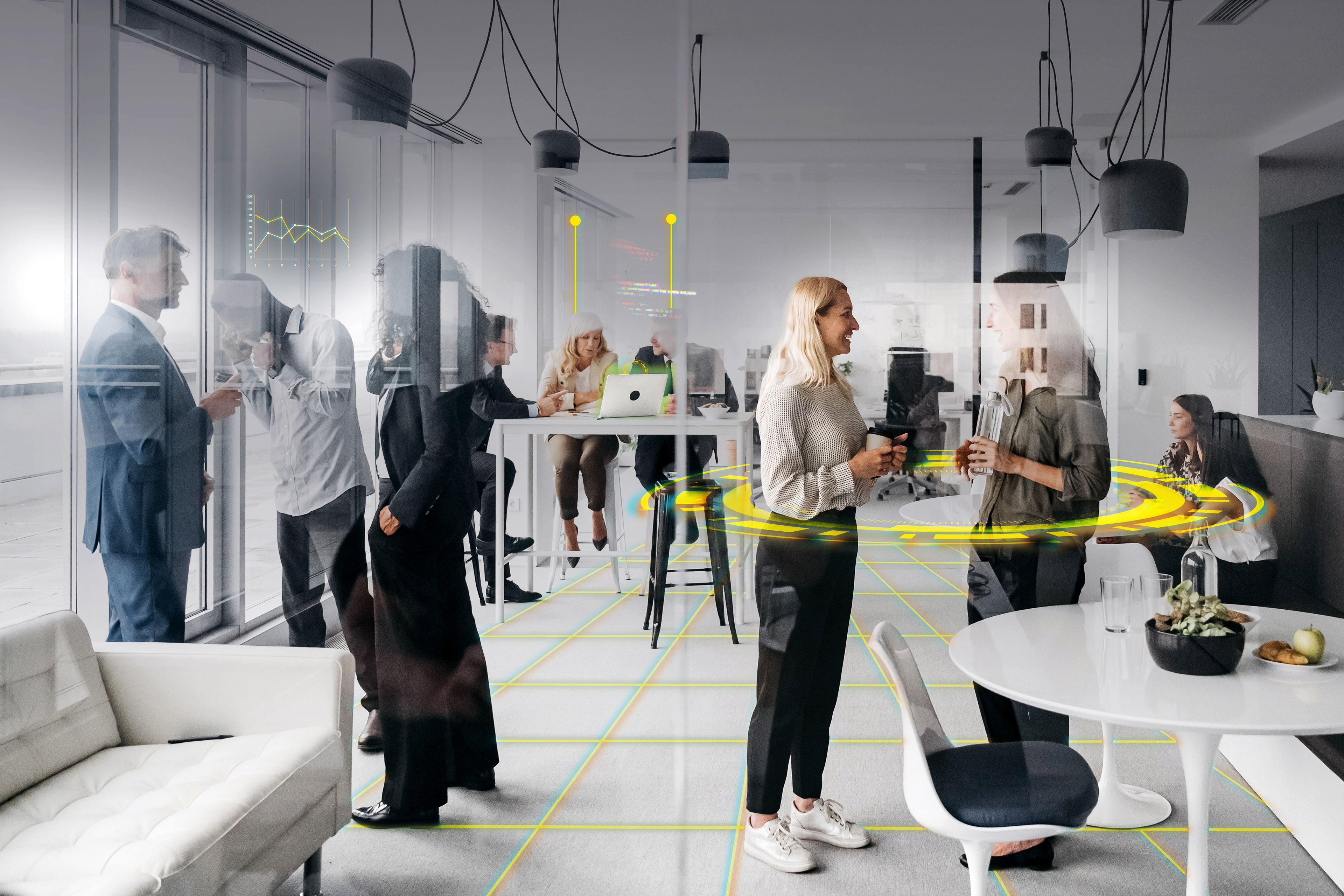EY refers to the global organization, and may refer to one or more, of the member firms of Ernst & Young Global Limited, each of which is a separate legal entity. Ernst & Young Global Limited, a UK company limited by guarantee, does not provide services to clients.

The integration of artificial intelligence (AI) into the workplace is significantly affecting employees across various sectors in Belgium.
In brief
- Most Belgian employees expect AI will reduce jobs, but only half of them understand that it will primarily reshape their roles and skills.
- Eight out of ten Belgian employees say that their company does not provide enough AI training, while managerial employees claim the opposite.
- Employees in Financial Services, and Technology, Media & Telecom are most optimistic about AI. Employees in Public Services and Healthcare see less promise.
The integration of artificial intelligence (AI) into the workplace is significantly affecting employees across various sectors in Belgium, as reported in the EY European AI Barometer 2024.
Most leading minds in business consider that employees will be empowered by AI to work smarter and faster. One of our main goals with the EY European AI Barometer 2024 was to find out what employees in Europe think about this transformation process. Among other things, we asked whether the workforce feels the support of their employers, or do they – figuratively speaking – run into walls of unwillingness? Our Barometer polled whether the use of AI will likely lead to job losses, and what might be the broader impact of AI on their lives and careers. In this article, we focus on the impact of AI on employees in Belgium.
Generally positive
Taking a look at the broad picture first, it is notable that 75% of respondents in Belgium expressed optimism about AI development in general. This is in line with the average across western Europe. Respondents in Portugal were found to be the most optimistic about AI development in general – employees in Austria, Switzerland and Germany were considerably less optimistic.
Job displacement and transformation
One of the primary concerns regarding AI adoption is job displacement. According to the report, 74% of respondents in Belgium believe that fewer employees will be needed as AI systems become more established. This concern is higher than the average in Europe, where 68% of respondents expect a reduction in workforce needs due to AI. Remarkably, 52% of Belgian employees do not think that AI will affect their jobs in any meaningful way, higher than the Western European average of 47%. They are aware that this transformation is not just about job losses but also about reshaping job roles and creating new opportunities for those who can adapt. Even more surprising, the study found that managers are more likely to expect AI to take over parts of their tasks than non-managerial employees.
This transformation is not just about job losses but also about reshaping job roles and creating new opportunities for those who can adapt.
Current influence of AI on work
At the moment, AI's influence on daily work tasks is still emerging. Only 12% of respondents in Belgium reported that AI is already impacting their work, which is relatively low compared to other European countries like Italy (24%). However, expectations for future influence are higher, with many Belgian employees anticipating significant changes in the next few years. Across Europe, more than half of the respondents (53%) say that AI applications are already influencing their work or will do so in the near future. Additionally, 70.9% of Belgian respondents have used or are actively using AI applications like ChatGPT, slightly below the West-European average of 72.1% but higher than in neighboring Germany (67.3%) and the Netherlands (66%). As a side note, at EY Belgium, we see a consequence of this in our human resources department. Three out of four application letters from young consultants are made with ChatGPT. We do not condemn its use, but we do ask them to remain critical of its output.
Upskilling and reskilling
To mitigate the negative impacts of AI, such as job displacement, there is a strong emphasis on upskilling and reskilling the workforce. The report highlights the critical role of training in preparing employees for the AI transformation. Yet many Belgian employees feel that current training initiatives are insufficient. More than eight out of ten Belgian employees state that their company does not provide enough help or training to work with AI. The demand for live training and workshops is particularly high, indicating a need for more interactive and comprehensive learning opportunities to equip workers with the necessary AI-related skills. However, 56.1% of Belgian managers believe their employees have already received adequate training to work effectively with AI. It is important to note here that AI is a shared responsibility. Companies need to actively make employees more agile by building a company culture in which people dare to experiment with AI and make mistakes. At the same time, employees need to understand that their work can look different tomorrow and that they have the means to self-educate to prepare for changes.
AI and its sector-specific impacts
The way employees perceive the impact of AI varies across sectors. Employees in Financial Services (82%), Technology, Media & Telecommunications (82%), and Advanced Manufacturing & Mobility (77%) are most optimistic about AI development. These are also the sectors that are most proactive when it comes to adopting AI. Meanwhile, employees in Health Sciences & Wellness (58%), and the Government & Public sector (53%) find AI the least promising. Most concerns raised in these sectors have to do with privacy, ethics, and loss of control, despite the fact that AI has a lot to offer to these sectors as well. It is important to remember that AI primarily facilitates. The human touch will always remain crucial when AI is in play. Even with small AI applications, like writing patient files, the doctor has to check the output at all times. AI just saves them the time of having to write the files themselves. The same generally applies to all sectors.
Regulatory landscape
The regulatory environment around AI is also evolving. The European Union's Artificial Intelligence Act (AIA), introduced in May 2024, aims to regulate AI development and use. This regulatory framework is crucial for addressing concerns such as privacy, bias in algorithms, and job displacement. Compliance with these regulations will be essential for companies operating in Belgium and across Europe.
Conclusion
AI is poised to have a profound impact on employees in Belgium, bringing both challenges and opportunities. While job displacement due to automation is a significant concern, the potential for job transformation and the creation of new roles cannot be overlooked. To fully harness the benefits of AI, there is a pressing need for comprehensive upskilling and reskilling programs in Belgium, along with robust regulatory frameworks to ensure ethical and fair AI deployment. As AI continues to evolve, it will be crucial for Belgian organizations to adopt a human-centered approach, focusing on empowering employees and fostering a culture of continuous learning. This approach will help ensure that employees are not just surviving but thriving in an AI-driven future.
EY Belgium newsletter
Subscribe to our monthly newsletter and stay updated on our latest insights.
Summary
The EY European AI Barometer 2024 highlights significant concerns among Belgian employees about AI, with 74% fearing job losses. While AI is seen as a threat to current job structures, it also offers potential for new roles and skill development. The report underscores the necessity for better training programs and strong regulatory frameworks to support employees through these changes. Current AI impact on daily tasks is low, but expectations for future influence are high, pointing to the need for a human-centered approach to ensure employees can adapt and thrive.
Related articles
AI adoption in Belgium: 3 out of 4 fear AI will lead to fewer jobs
AI Barometer reveals disparities in AI training and usage between employees and managers, with cautious optimism for future advancements.
How can the potential of AI be maximized in the Belgian workforce?
For Belgian enterprises to fully exploit the capabilities of AI, it is vital to concentrate on pragmatic, experiential learning.


